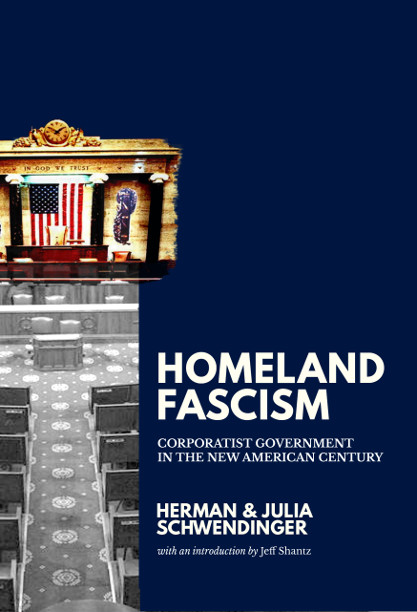
It can't happen here..
This has been the prevailing sentiment about the possible emergence of fascism in the United States since the rise of international fascism in the 1930s.
Yet there are signs that it may already be happening, and at the highest levels of government...
In their copiously researched and documented work the Schwendingers outline the structural transformations, policies, and practices that raise the prospect of fascist governance in the 21st Century US. They show that a homeland fascism has significant supports within the framework of American liberal democracy. This is an important analysis in a context in which concerns about fascist demagoguery and far right mobilization appear to be growing in the US and beyond.
NOW AVAILABLE:
Homeland Fascism: Corporatist Government in the New American Century
by Herman & Julia Schwendinger
with a forward from Jeff Shantz
Release Date: June 23, 2016
ISBN: 0692715169
ISBN-13: 9780692715161
Pages: 721 | Paperback: 8.5" X 5.5"
 DOWNLOAD in full colour: : as a PDF { size: ~4.3MB}
DOWNLOAD in full colour: : as a PDF { size: ~4.3MB}
or in EPUB, MOBI for kindle, coming soon)
ORDER in PRINT: 8.5" X 5.5" trade paperback (721 pages)
via punctum books ✶ earth, milky way
About the Authors...